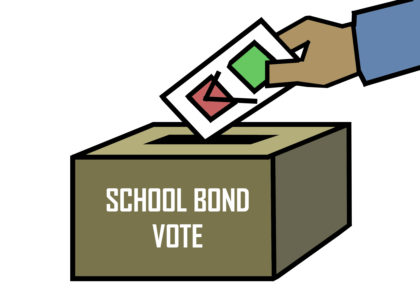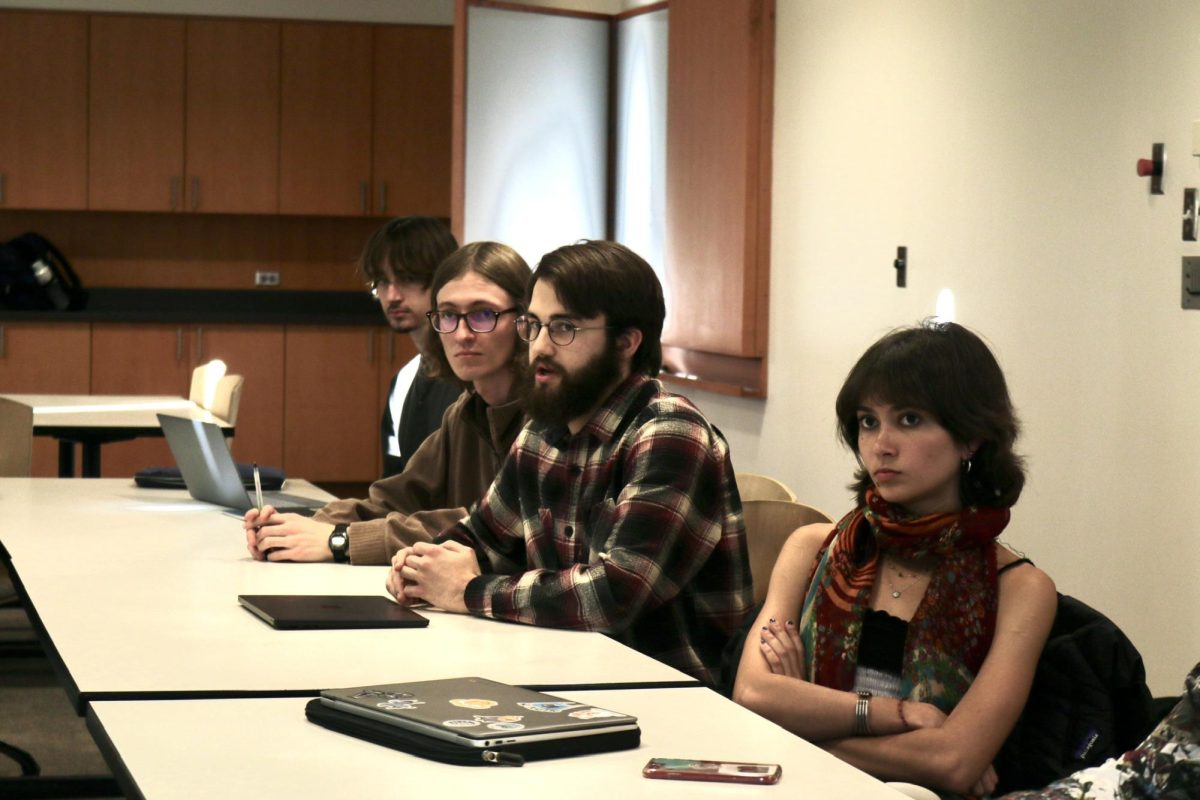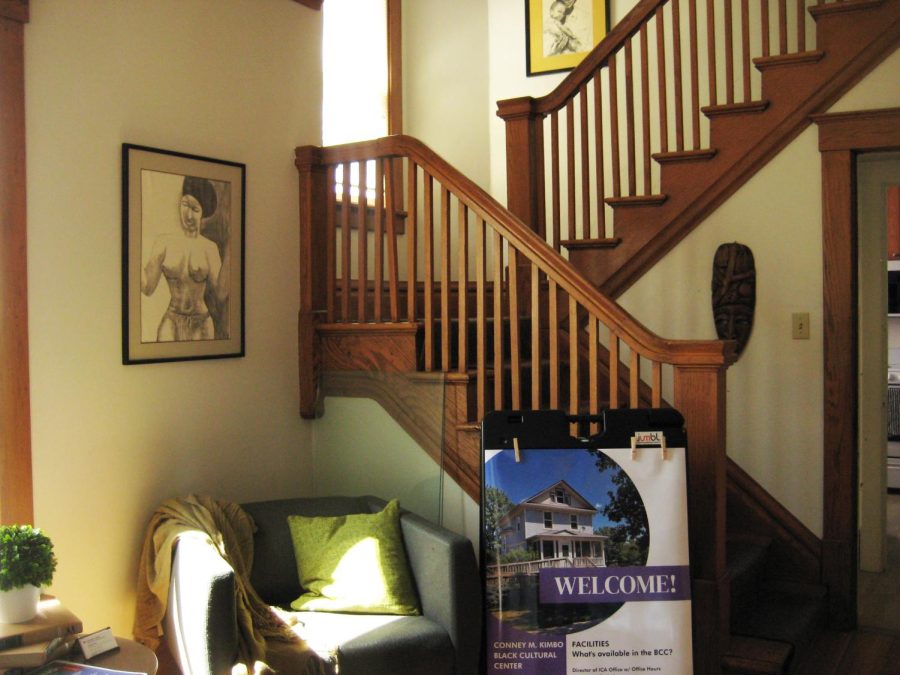The recent controversial school bond election brought simmering tensions between the College and community to a boil this month as both sides used the student vote to mobilize supporters, and the College seemed to take a public position.
Driving suspicion among members of the “no” campaign was the perception that the College and college students were biased actors in the school bond. They cited a large “Vote Yes” sign on College property as evidence.
In an emailed statment to The S&B, the President’s Office confirmed that President Kington approved the “Vote Yes” sign on College property, saying that “As an institution, Grinnell College supports improvements in our local schools: A high quality K-12 education system is essential to a healthy community and is critical to the College’s ability to recruit and retain faculty and staff.”
But some community members perceived this decision as an instance of the College inappropriately interfering in a local election.
Dale Lamb ’78, a supporter of the “no” campaign, sent a letter to the Board of Trustees expressing his dismay that the College would support one side of a divisive issue in the community.
A copy of the letter provided by Lamb to The S&B read in part, “In an era where the college purports to strive toward a goal of greater unification locally, taking such action … in this extremely divisive issue generates a profound disharmony between the College and town people.”
According to Lamb, he contacted Facilities Management (FM) during the previous school bond election to ask if the “no” campaign could erect their own sign on College property and was told no.
Another point of contention involved students voting in the election. Some community members felt that students lacked the financial stakes — because they do not pay property taxes — to vote in this election. But Rachel Bly ’93, a college student turned community member who is now co-chair of the Poweshiek County Democrats and a city council member, as a well as a supporter of the “yes” Campaign, criticized the “landowner” argument as a “slippery slope” that harkens back to voting requirements that included gender, race and literacy. She said that while students may not pay property tax directly, they are still paying to be here.
“I would argue that everyone is actually a taxpayer, because if you rent in town you are helping that landlord to pay the property tax … Everyone, be it directly or indirectly, is paying a property tax.”
Allie Pearce ’20, co-chair of the Campus Democrats and supporter of the “yes” campaign, worked to engage students in the election, and while she began her campaign intending to let students “decide for themselves,” Pearce was prompted by what she saw as a misleading and factually inaccurate “no” campaign to be more aggressive in her postering. Pearce regrets the polarizing nature of the posters but believes the stakes were high enough to warrant some polarization.
The posters featured provocative quotes from those against the bond, including one that quoted a Sept. 5 Facebook post written by “Vote no Grinnell,” a Facebook group that advocated against the school bond.
“A concerted effort to recruit Grinnell College students to vote is evident … If you want decades of taxation on your property/increases in rent costs and the plans to spend those taxes to be influenced or determined by non/part time resident, non-taxpaying, gone in a few years voters then … get out and VOTE NO!!” read the post.
Another poster quoted Brent Hendricks on KGRN radio as saying, “The College students are mercenaries, being used because they have no attachment to the town outside of a four-year period … But they don’t pay taxes … all they will be left with is the fact that they got to come and participate on a local level in a political program. Fine.”
However, immediately following the end of the quote on the poster, Hendricks continued in the KGRN interview, “They have that right, and that’s been the case for a long time. So I’m not making a case against them voting.”
In an interview with The S&B, Hendricks expressed dismay that college students who do not pay property tax still vote on issues with tax implications, but he dismissed the idea that they should not vote outright. Instead, he criticized community members who fail to vote in elections.
“If only 1,200 people vote in a town of 9,000, it’s not the College students that are the problem,” he said.
Lamb argued that as long as students are well informed and understand the community, then they have every right to vote in local elections.
Some in the “no” campaign felt unfairly demonized by the “yes” campaign, according to Hendricks, driving resentment between the two factions in the community.
“The Vote Yes people don’t have the moral high ground here,” Hendricks said, “We’re not troglodytes who have no interest in children learning. We care too. You’re not morally superior just because you want to spend $60 million on a new building.”
In addition, Hendricks believes that the “adroit and capable” Grinnell students are “disserved when [they are] manipulated for a political gain.” He singled out superintendent Janet Stutz, saying she failed to convince community members to vote for the bond and so turned to students — who he believes lacked a natural interest in the election — to vote in favor of the bond.
The School Bond Election has ended, but these divisions are unlikely to disappear after this election, and it’s an issue many students and community members grapple with. For Pearce the solution lies in simply “getting to know each other.”
“I really just want to make sure that students are able to involve themselves in the town and are able to consider themselves community members, and that there isn’t any resentment and there isn’t any bitterness,” Pearce said. “And I know I’ve done my part to foster that, and now it’s time for me to work to fix things.”



























































